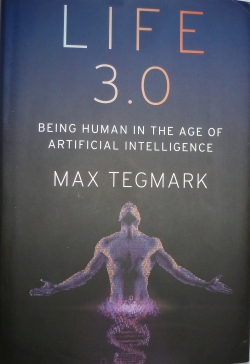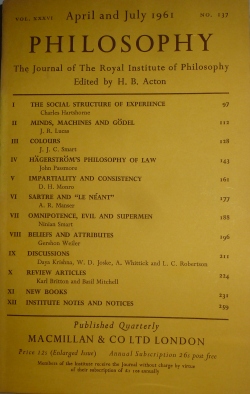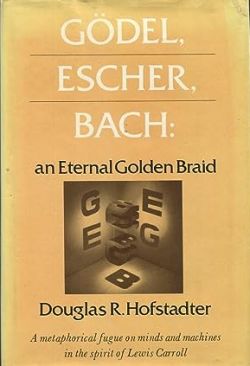 Advancement in Artificial Intelligence (AI) is progressing with unexpected speed, spreading across nearly every industry and discipline. The stakes in the race for generative AI are rising and technology companies are spending big. With the proliferation of big data and large-scale data lakes, we have now entered the world of large language models of chatbots such as ChatGPT, Copilot, and Bard. Early imaginings of AI by fiction writers conceived versions of intelligent machines taking over the world. And now the old debate of whether a machine can be built with an adequate model of the human mind is once again in the forefront.
Advancement in Artificial Intelligence (AI) is progressing with unexpected speed, spreading across nearly every industry and discipline. The stakes in the race for generative AI are rising and technology companies are spending big. With the proliferation of big data and large-scale data lakes, we have now entered the world of large language models of chatbots such as ChatGPT, Copilot, and Bard. Early imaginings of AI by fiction writers conceived versions of intelligent machines taking over the world. And now the old debate of whether a machine can be built with an adequate model of the human mind is once again in the forefront.
AI will, without a doubt, help deliver exceptional new discoveries by outsourcing functions of our humanity to intelligent machines. But can scientific inquiry ever exhaust the infinite variety of the human mind? Mathematical logicians have argued back and forth on Kurt Gödel’s Theorem published in his epoch-making paper of 1931. Gödel exhibited, for the first time, that systems of logic, no matter how powerful, could never deduct proofs of all true assertions of arithmetic. The Gödelian formula may be the Achilles’ heel of AI, and therefore we cannot hope ever to produce a machine that will be able to do all that a mind can do.
 Philosopher John Randolph Lucas, in his paper “Minds, Machines and Gödel,” 1 argued in favor of Gödel’s incompleteness theorem and against Alan Turing, Carl Hempel, Hartley Rogers and others, and concluded that “we can never, not even in principle, have a mechanical model of the mind.” Standing on the shoulders of a giant, he suggested long before machine learning was adopted in AI, that having rules (defined through human intervention or not) generate new axioms, in some cases may lead to inconsistencies and contradictions.
Philosopher John Randolph Lucas, in his paper “Minds, Machines and Gödel,” 1 argued in favor of Gödel’s incompleteness theorem and against Alan Turing, Carl Hempel, Hartley Rogers and others, and concluded that “we can never, not even in principle, have a mechanical model of the mind.” Standing on the shoulders of a giant, he suggested long before machine learning was adopted in AI, that having rules (defined through human intervention or not) generate new axioms, in some cases may lead to inconsistencies and contradictions.
Douglas Hofstadter, Professor of Cognitive Science and Comparative Literature at Indiana University in Bloomington, wrote the book: “Gödel, Escher, Bach: an Eternal Golden Braid.”2 He described his book as “a metaphorical fugue on minds and machines.” He uses the self-referential structure lying at the heart of Gödel’s incompleteness theorem to demonstrate the analogy between Gödel’s theorem, the patterns of Escher’s paradoxical drawings and the contrapuntal music of Bach. According to Hofstadter, words and thoughts produced by the human mind do not follow formal rules.
 More recently, Max Tegmark, physicist, cosmologist, machine learning researcher, and professor at the Massachusetts Institute of Technology, wrote “Life 3.0: Being Human in the Age of Artificial Intelligence.”3 The book projects some plausible outcomes, beyond the current developments at labs such as Deepmind, OpenAI, and research in self-driving cars, to a time when AI exceeds human intelligence by not only being able to learn, but also redesign its own hardware and internal structure. Superintelligence is quite controversial right now and fiercely opposed by many computer scientists.
More recently, Max Tegmark, physicist, cosmologist, machine learning researcher, and professor at the Massachusetts Institute of Technology, wrote “Life 3.0: Being Human in the Age of Artificial Intelligence.”3 The book projects some plausible outcomes, beyond the current developments at labs such as Deepmind, OpenAI, and research in self-driving cars, to a time when AI exceeds human intelligence by not only being able to learn, but also redesign its own hardware and internal structure. Superintelligence is quite controversial right now and fiercely opposed by many computer scientists.
Disturbing visions of the future of AI are better left to science fiction novels with ideas about machine consciousness and self-replicating machines. Science fiction authors have been first to write about the consequences of AI. Samuel Butler’s 1872 novel Erewhon, contains ideas of machine consciousness. Self-replicating machines revolt in Karel Čapek’s 1920 science fiction novel, R.U.R., which coined the word “robot.” The science fiction novelist Frank Herbert, in his Dune series, betrays a world in which mankind is forced to fight against machines of AI, and impose a death penalty for those recreating them. While we are not quite there, the thought that we may one day have to confront such a world is terrifying. Now more than ever we need to be reminded of the fact that we have a limited time on this planet to seek knowledge, truth, and creations of beauty.
1 J.R. Lucas: “Minds Machines and Gödel”; PHILOSOPHY, April and July 1961, pp.112-127
2 Douglas Hofstadter, “Gödel, Escher, Bach: an Eternal Golden Braid” (New York: 1979, Basic Book Publishers)
3 Max Tegmark, “Life 3.0: Being Human in the Age of Artificial Intelligence.” (New York: 2017, Alfred A. Knopf)
{ 0 comments… add one now }